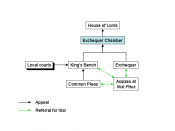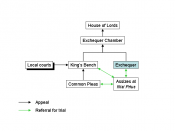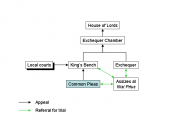Common law evolved over time as a judge made law (according to doctrine of precedent.) In common law the king was the head of the government. Common law was the law administered by the royal courts and as such a more standardised set of rules based on customary law was gradually enforced throughout the whole of England and countries derived from England. E.g. Australia, Canada New Zealand and the United States
Common laws rules were too broad to deal with governing a society as complex as England.
Originally people had to go to the king in order to ask for justice. The king and his council would listen to the application and in many cases modify the decision made by common law courts. Equity was soon developed to address common law's weaknesses and inadequacies. Equity refers to rules developed that look at what is fair or just in individual cases.
Equity's rules do not contradict the common law, rather they aim at securing substantial justice when the rule of common law might see injustice.
Common laws courts were limited in their judgements to award money or the recovery of personal property. They were also not equipped to deal with cases arising out of economic transactions. Essentially common law lacked the ability to right a huge range of wrongs.
Equity on the other hand can cancel a document, compel the delivery of deeds or specific personal property, or demand specific performance of a contract. The courts of equity (Chancery Courts) can also issue a declaratory judgements and injunctions (a judicial remedy issued in order to prohibit a party from doing or continuing to do a certain activity.)
All transfers of titles to property were regarded by the common law courts as unconditional. The result was that the courts were helpless to enforce the original owner's intentions. Once title had been transferred ownership was regarded as absolute and this was true even when fraud was involved. The Chancery courts were under no such constraint.
The courts of chancery were in position to grant relief in any instances where a person could not be awarded a remedy in common law, even when entitled to it.





